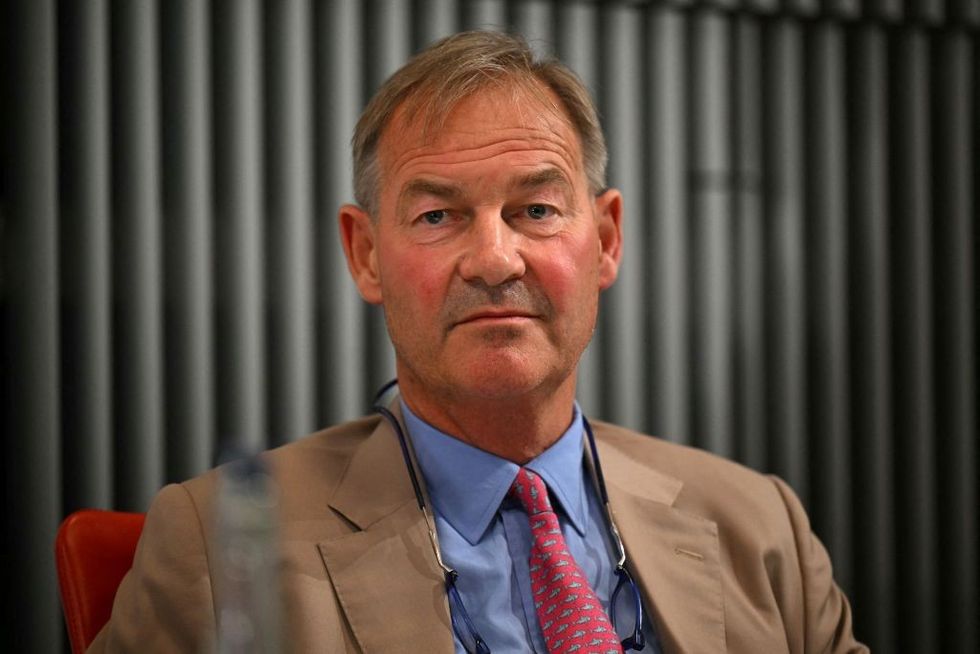Labour drops grooming gang inquiries in shock announcement
GB News
OPINION: Labour have committed an act of cowardice in cancelling local inquiries into the grooming gangs scandal, says Dr Rakib Ehsan
Don't Miss
Most Read
Trending on GB News
In an act of sheer opportunistic cowardice, the Labour government has dropped its plans to support five local inquiries into the grooming gangs – making the announcement on the final day before Parliament breaks for Easter access. GB News is of the understanding that Parliament was given just 45 minutes’ notice before the government made the update.
Back in January, home secretary Yvette Cooper allocated a measly sum of £5 million to fund five local inquiries into grooming-gang activity – formally known as group-localised child sexual exploitation (GLCSE). A three-month ‘rapid national audit’ into the cultural and societal drivers of GLCSE, spearheaded by Dame Louise Casey, was also announced. Before today’s spineless backtracking on the brink of parliamentary recess, Labour’s existing plans for ‘investigating’ grooming gangs was already wholly inadequate – falling well short of the national statutory inquiry required and wanted by most of the British public.
GB News’s Charlie Peters has identified fifty areas of interest – ten times the number of local inquiries originally planned. These plans have now been scandalously downgraded to a ‘flexible’ fund for “locally-led work” following consultations with local authorities.

Labour's spineless backtracking is the latest let down for grooming gang victims - Dr Rakib Ehsan
GB News/Getty Images
Perhaps it is no surprise that the governing party is reluctant to commit to a thorough nationwide investigation into the grooming gangs – after all, many of the gross institutional failures connected to the rape, torture, and brutalisation of white working-class girls at the hands of predatory male networks of Pakistani heritage have occurred in Labour-controlled areas. Take, for example, the premature closing down of Operation Augusta, a police and social services investigation into child sexual exploitation which was prematurely closed by Greater Manchester Police (GMP) with the support of Manchester City Council (which has been under Labour majority control since 1971).
A major hotspot of grooming-gang activity is the market town of Rotherham in south Yorkshire, with the local council being under Labour control since its creation back in 1974. Another is the Shropshire town of Telford, which has traditionally been under local Labour control (apart from short stints of no party having overall control, with the Conservatives being in charge from 2008-2011).
While former Reform MP Rupert Lowe’s plan for a crowdfunded private inquiry is an entirely noble endeavour, it will lack the teeth of a statutory inquiry which has the powers to compel witnesses to attend and take evidence under oath. While towns such as Rotherham and Telford have had their local investigations, both were insufficient in terms of holding specific individuals to account across police forces, local councils, social services, and safeguarding teams.
It is vital to examine the cultural, societal, and economic drivers of grooming-gang activity and to understand the factors behind institutional failures. Crucially, the benefit of a statutory inquiry is its powers being used to determine public sector accountability – possibly leading to the loss of current position and state pension entitlement, and in the very worst cases, criminal prosecutions.

Rupert Lowe's crowdfunded private inquiry is admirable but has no power to enact change.
Getty Images
Britain’s grooming gangs is not only a national scandal – it has deservedly damaged our international reputation. Official accounts of the violence inflicted on grooming-gang victims are truly harrowing. In some cases, not too dissimilar to the the sexual violence carried out by jihadists on women and girls belonging to minorities in conflict-affected areas of the Middle East.
Neither is it all that different to the systematic campaign of genocidal rape against Bangladeshi women and girls by Pakistani servicemen and Razakar paramilitary force during the 1971 Liberation War. This is what has unfolded – for decades – in towns and cities across England.
If a true marker of a mature and compassionate society is how its most vulnerable members of society are protected and supported by the State, then Britain has failed miserably – letting down the victims of exploitative grooming gangs, time and again.







